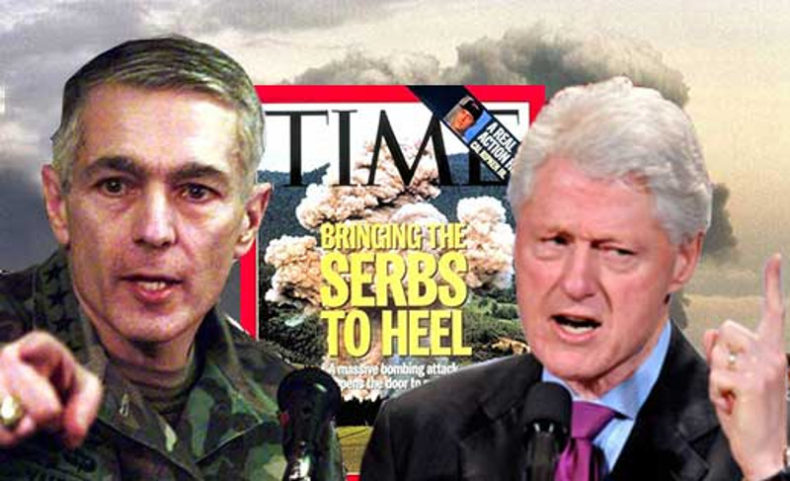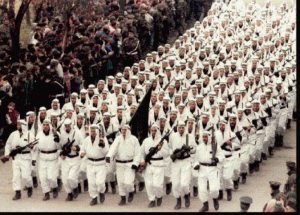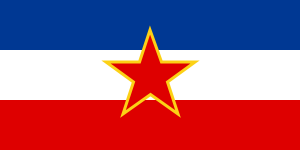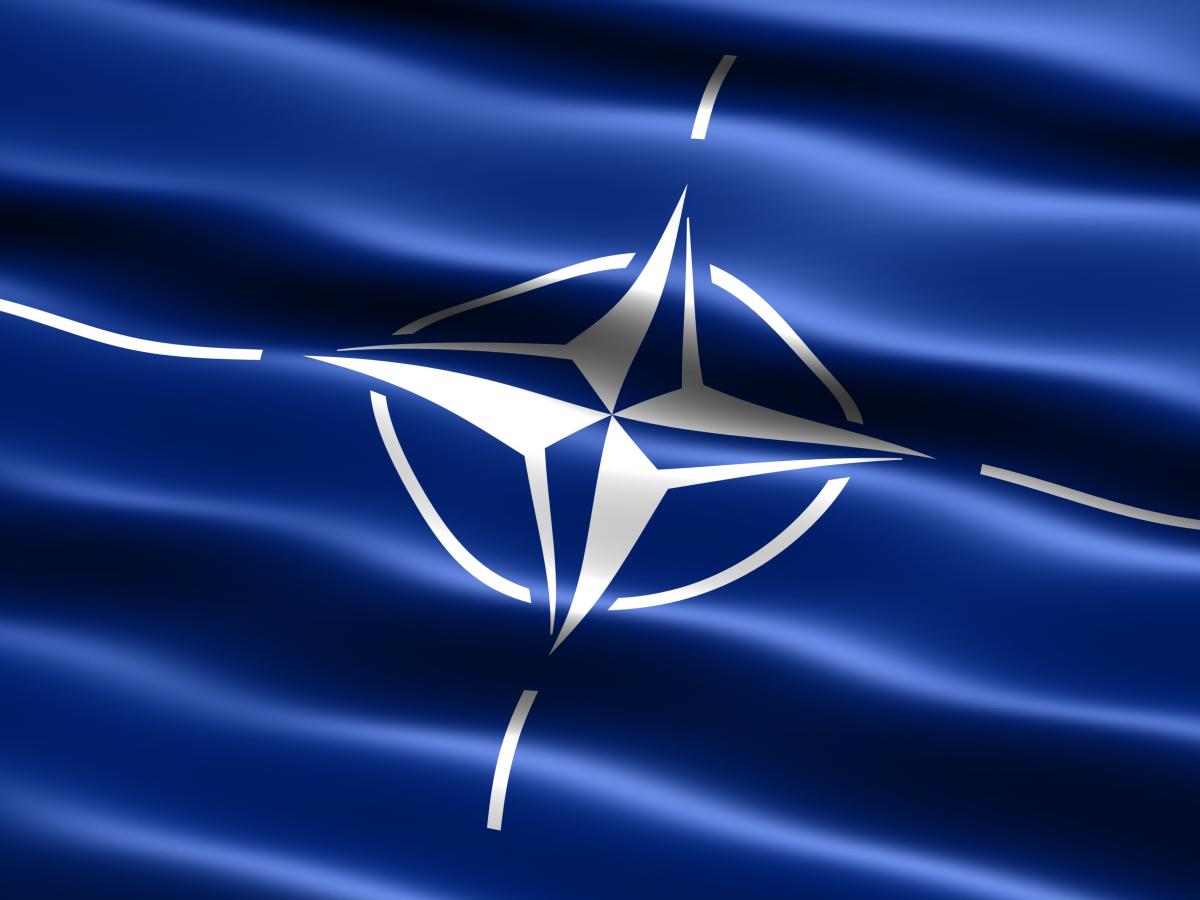
Views: 2828
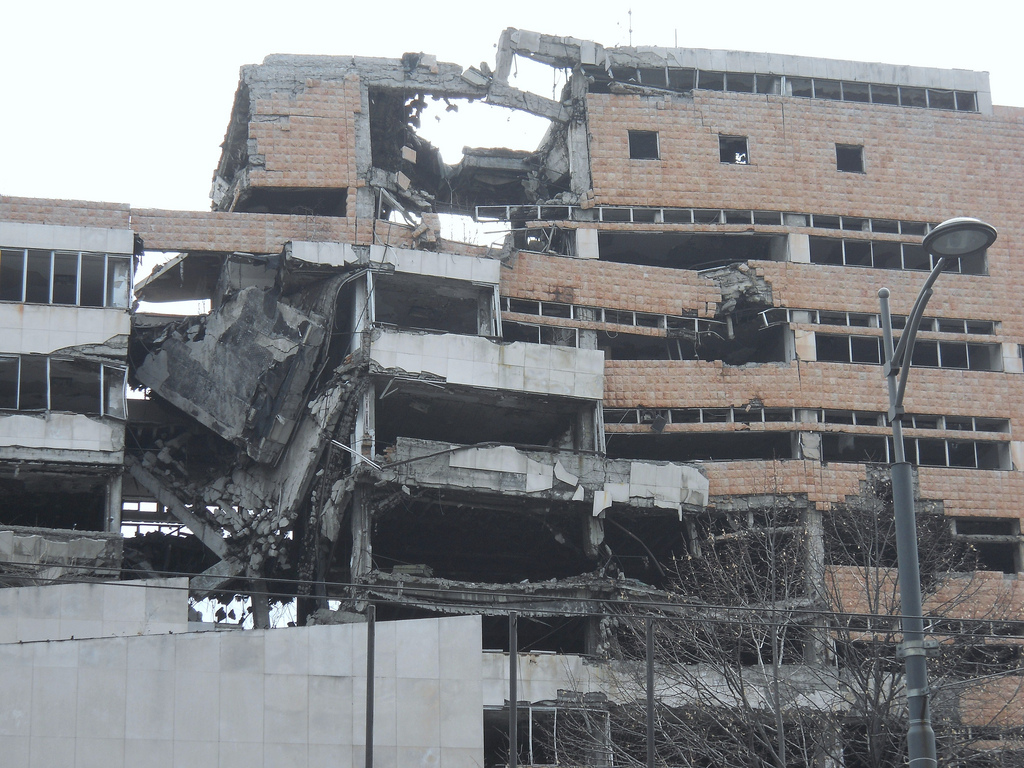
George Szamuely. Bombs for Peace: NATO’s Humanitarian War on Yugoslavia. Amsterdam: Amsterdam University Press, 2013 (Distributed in the U.S. and Canada by the University of Chicago Press). Paper. Pp. 611.
In Bombs for Peace, George Szamuely, a senior research fellow at the Global Policy Institute at London Metropolitan University, has produced a revealing and sharply argued analysis of Western intervention in the Balkan wars of the 1990s. The primary focus of the book is on Western diplomatic and military interventions, which played a crucial role in the breakup of Yugoslavia and the plunge into conflict. Continued intervention fueled deeper conflict, as the United States repeatedly smashed every prospect for peaceful settlement until it could impose its control over the region.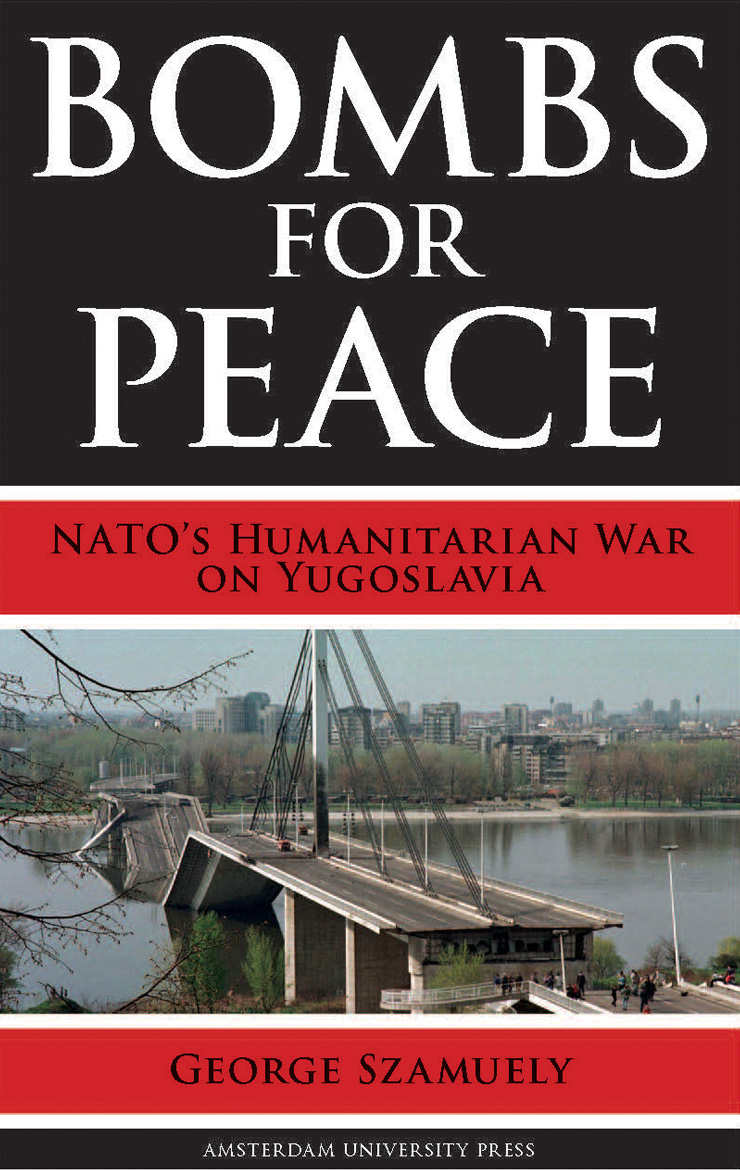
The author places these events in a wider policy context, exploring how Western leaders capitalized on conflict in the Balkans to reorient NATO into an offensive organization suited for out-of-area operations. From participation in the occupations of Iraq and Afghanistan to the bombing of Libya, NATO’s aggressive role is firmly established. Feeding the public with simple-minded morality tales, Western leaders distracted attention from their real goals. “NATO,” Szamuely writes, “under constant U.S. prodding, seized on the crisis in Yugoslavia to transform itself from a defensive alliance into a global superpower, a coalition of powers that would purport to use force to secure peace and stability, a protagonist in other people’s conflicts yet also a referee. NATO could nonetheless not admit publicly that it had now become a war-making machine. So it came up with an ingenious formula. . . . Humanitarian war was to become its credo.” Non-Westerners rightly perceived NATO’s humanitarian war doctrine “as a fraud, a smokescreen to confuse the public, a mélange of wild exaggerations and deceptions to justify intervention in the affairs of small, weak states or in complicated conflicts on behalf of certain protagonists and against others.”
In his opening chapter, “Yugoslavia: Destroying States for Fun and Profit,” Szamuely lays bare the myriad diplomatic maneuvers by U.S. and Western European officials that guaranteed the destruction of the state and made war inevitable. Western intervention was consistently one-sided and heavy-handed, aimed at the demise of Yugoslavia, the last remaining socialist nation in Europe.
Having successfully backed the secession of Slovenia and Croatia, the West then threw its support behind the separation of Bosnia-Hercegovina. After encouraging Bosnian Muslim leader Alija Izetbegović to renounce the Lisbon Agreement that he had just signed, an accord that would have prevented war from breaking out, the United States then sabotaged the London Conference. Quoting an approving Western media report that applauded war and derided peace negotiations, Szamuely responds: “Thus the perfect expression of that peculiar, yet fashionable, moral sentiment: continued war, more killings, more destruction of towns and villages, more displacement of populations, more detention camps, more refugees were preferable to an agreement that — perish the thought — ‘might silence the guns for a time.’ Heroism comes easily to those for whom it’s vicarious.”
As the war dragged on in Bosnia, the United States repeatedly derailed peace negotiations and blocked ceasefires. Countless lives were lost to serve the dubious goal of imposing U.S. control over the region.
When Croatia launched Operation Storm against the Krajina region, it killed 2,500 and expelled 200,000 Serbs, dwarfing in size any single act of population removal that had taken place in Bosnia. The Croatian forces that launched the operation were well armed with Western weaponry and had the backing of the United States, which had prepared them with military training. U.S. warplanes provided support by bombing a Krajina Serb airfield and destroying radar installations, allowing Croatian planes free rein to bomb and strafe columns of fleeing civilians. “U.S. officials were delighted,” Szamuely writes. “Here was a massive humanitarian disaster that the humanitarian interventionists could celebrate.” He goes on to quote approving statements made by several U.S. officials.
Bosnia marked NATO’s first military engagement. In the largest of its bombing campaigns in that war, NATO launched widespread attacks against Bosnian Serb sites in support of Croatian cross-border and Bosnian Muslim offensives in 1995. U.S. diplomat Richard Holbrooke met with Croatian President Franjo Tudjman, and urged him to extend his forces’ assault in neighboring Bosnia: “I would hope that you can take Prijedor, Sanski Most, and Bosanski Novi.”
The end of the war in Bosnia accomplished the Western goals of military occupation and political and economic control over the newly minted state that became a colony in all but name. From the Western standpoint, there remained the problem that Yugoslavia, then comprised of Serbia and Montenegro, with its socialist-dominated economy was still in place. A new pretext would have to be invented for war, and that was found in Western support for the secessionist Kosovo Liberation Army. “For NATO, Kosovo was to be the test of its new post-Cold War strategy of offering military solutions to non-military problems,” Szamuely points out.
Szamuely details the maneuvers by U.S. diplomats at peace talks in Rambouillet, shortly before the NATO bombing campaign, in which they steered the outcome towards war. The inescapable conclusion is that U.S. leaders wanted war.
The bombing of Yugoslavia provided a lesson for future interventions. The absence of evidence to buttress wild and exaggerated propaganda claims is no impediment. “Nothing succeeds like success. And the measure of success is the lack of NATO casualties. Small wonder, then, that in 2002 and 2003 U.S. and British officials and their media boosters disdainfully ignored the intelligence that raised serious doubts about Iraq’s WMDs. The Kosovo experience had taught them that failure to find evidence to support the claims used to launch an armed attack would be quickly forgotten amid the scenes of public rejoicing and ecstatic military parades.”
That scenario was to be replayed in Libya, where Western accusations of an imagined impending massacre provided the self-justification for bombing. “Yet, as in Yugoslavia, the Western powers made no attempt to ascertain whether a cri me had been committed or was about to be committed. . . . The NATO powers were determined to start bombing as soon as the Security Council passed its resolution. Any delay might have led to a peaceful resolution of the crisis, an outcome the powers were as anxious to avoid in 2011 as they were in 1999.”
me had been committed or was about to be committed. . . . The NATO powers were determined to start bombing as soon as the Security Council passed its resolution. Any delay might have led to a peaceful resolution of the crisis, an outcome the powers were as anxious to avoid in 2011 as they were in 1999.”
Szamuely is devastating in his critique of U.S. diplomatic measures leading up to NATO’s attack on Yugoslavia. These maneuvers are essentially unknown to the Western public, including those on the Left who continue to cleave to the notion of U.S. leaders’ veracity and good intentions in regard to attacking small nations. Only through an act of willful blindness could such a belief be sustained in the face of the mountain of evidence that Szamuely marshals.
Laced with lacerating humor, Bombs for Peace is particularly effective in its deconstruction of Western rhetoric. Time after time, Szamuely quotes Western leaders’ words and takes them apart and subjects them to scathing logical analysis. With sweeping eloquence, Szamuely argues his points in a compelling and authoritative manner, exposing the mendacity of the proponents of war.
The official mythology is that NATO intervention stopped the wars in the Balkans. “As usual,” Szamuely notes, “the media were more than happy to go along with this story. Yet the only wars the NATO powers had brought to an end were those they themselves provoked and subsequently prolonged.”
The Western role in the Balkans is an object lesson that provides the template for many of the West’s subsequent interventions and wars, and Bombs for Peace is essential for understanding the nature of that relationship. “The complacency and arrogance of NATO’s leaders was extraordinary,” observes Szamuely. “To people who had been subjected to Western colonial rule — most of the non-Western world — NATO’s self-satisfied assumption of a new global mission sounded an awful lot like the old ‘white man’s burden.’ NATO was the old imperial club, back together again with a plan to ensure continuing rule over the world’s backward people.”
Prodigiously researched, Bombs for Peace is graced with the elegant prose style typical of the author, and with his long-held passion for justice. It is so beautifully written that it is hard to put down, and constitutes a damning exposé of Western policy.
Bombs for Peace: A Review
By Gregory Elich
About the reviewer: Gregory Elich is on the Board of Directors of the Jasenovac Research Institute and the Advisory Board of the Korea Policy Institute. He is a columnist for Voice of the People, and one of the co-authors of Killing Democracy: CIA and Pentagon Operations in the Post-Soviet Period, published in the Russian language.
Source: MRZINE
Origins of images: Facebook, Twitter, Wikimedia, Wikipedia, Flickr, Google, Imageinjection, Public Domain & Pinterest.
Read our Disclaimer/Legal Statement!
Donate to Support Us
We would like to ask you to consider a small donation to help our team keep working. We accept no advertising and rely only on you, our readers, to keep us digging the truth on history, global politics, and international relations.
FOLLOW US ON OUR SOCIAL PLATFORMS


